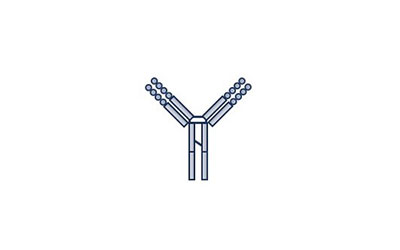-
SKU: sonichedgehogAs low as €112.00
In stock
-
-
Monoclonal Antibodies


Monoclonal antibodies (mAbs) are identical antibodies produced by a single B-cell clone line. They recognize a specific epitope on an antigen, which gives them a high specificity. These properties make them indispensable tools in diagnostics, research and therapy, especially in cancer, autoimmune diseases and infections.
Production typically begins with the immunization of an animal, usually a mouse, with the target antigen. The animal's B cells are then isolated and fused with myeloma cells to produce so-called hybridoma cells. These hybridomas combine the antibody production of the B cells with the unlimited ability of the myeloma cells to divide.
After fusion, the hybridomas are selected and tested for their ability to produce the desired antibody. The most promising cell lines are then expanded in cell cultures or in animals (e.g. mice). To isolate the antibodies, the culture medium or serum is purified, often by protein A or protein G chromatography.
Monoclonal antibodies offer the advantage of high consistency and reproducibility. They can be humanized by genetic modification to improve their tolerability. Their applications are diverse, for example in cancer therapy (e.g. checkpoint inhibitors) or inflammatory diseases (e.g. TNF-α inhibitors).
All prices plus VAT + possible delivery charges
